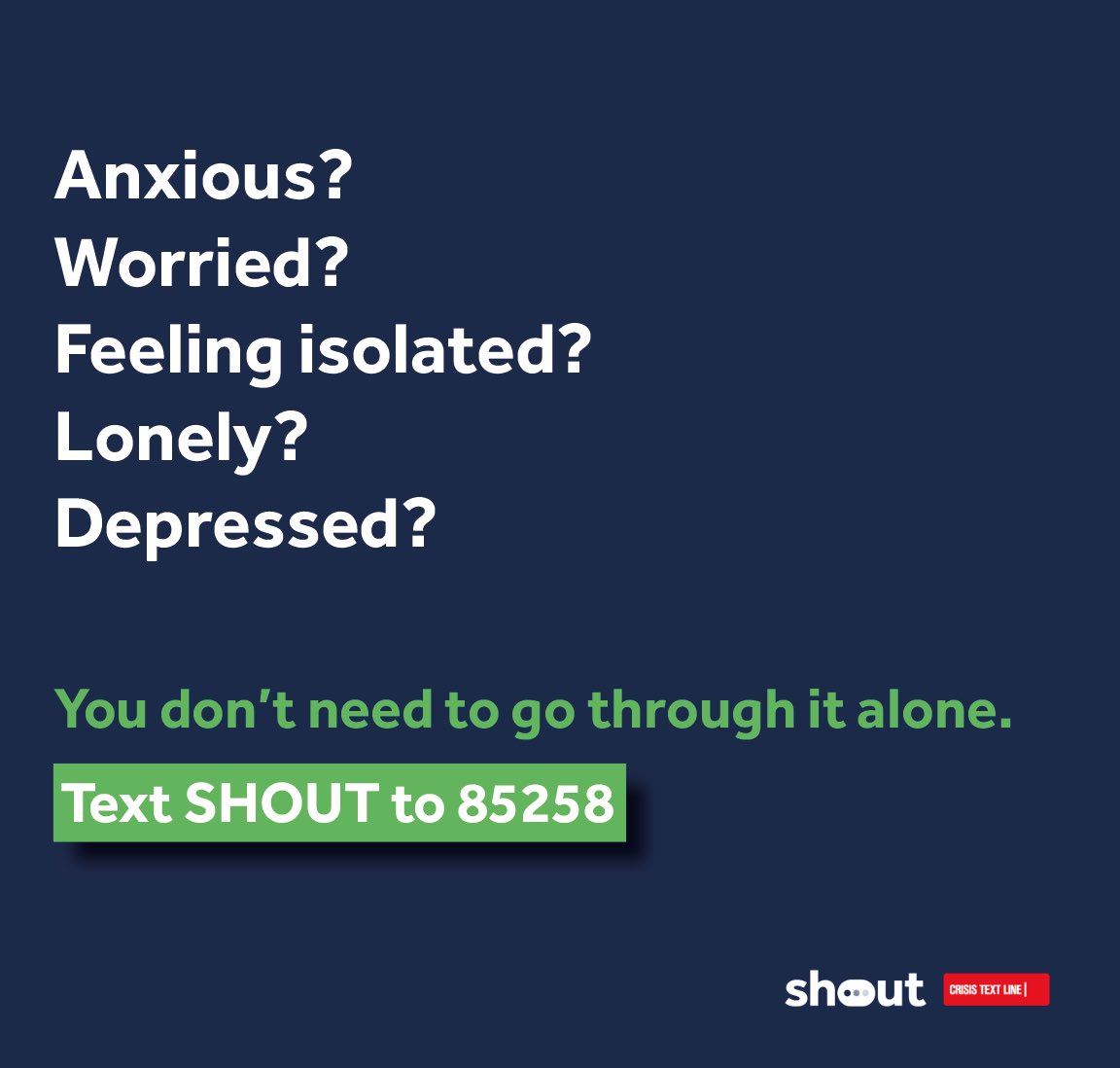I’ve always prided myself on being honest—telling the truth even if it puts me at a disadvantage. Over the years it has held me back in so many ways as I’ve watched dishonest people continue to succeed in life, but it’s still one of the few traits I admire about myself. However, I recently came to a revelation that I’m not as honest as I think I am…
I rarely discuss my mental health or private life in any detail, but there’s a topic I need to talk about. It also just so happens to be Mental Health Awareness Week, which feels like an appropriate time to do it.

My life has been dominated (read: stolen) by mental health difficulties (combined with a handful of other issues which I’ll save for future posts). For a bit of background relevant to this specific post, I was diagnosed with depression and anxiety at the tender age of 13—twenty years ago—following a few years of persistent low mood and self-harm that had my mother seriously concerned for my wellbeing. For over half my life I have been in some form of treatment or therapy. Since then, I’ve been given other, more specific, diagnoses such as dysthymia with bouts of major depressive disorder and unipolar depression, but as of 2014, it’s described as a treatment-resistant depression—a name that doesn’t exactly instil confidence in recovery. It’s now my default—in fact, in 2018 a consultant psychiatrist told me quite bluntly that “15 types of tablets can’t be wrong—maybe it’s just your personality”. I know there isn’t a fix for me, and I’m never going to miraculously become well enough to live a normal life like my loved ones hope I one day will, but these are the cards I’ve been dealt. I’ve accepted it. Getting through each day is incredibly tough and my future is bleak, but all I can do is keep taking it one day at a time. As with any long-term condition, you begin to develop an awareness and understanding of how it all works, so I’ve taught myself multiple techniques to try and hold it together—to curb and manage this illness without dragging all my loved ones down with me.
This brings me back round to the honesty thing… it turns out I’m the biggest liar I know. I recognise how privileged I am to have people who ask me how I am, but every time I respond to their heartfelt concern with a lie—I tell them that I’m okay, despite being far from it. I do so—firstly—because I don’t know how to talk about what I am feeling, and secondly because I hate feeling like I’ve burdened someone with the impossible task of wanting to help but being unable to. It feels unfair to purposefully make someone else feel helpless, to waste their time, or even ruin their good mood with my generic misery. It’s so much easier to simply paint on a smile and say there’s nothing wrong because in my experience a problem shared is always a problem doubled.

Perhaps if my depression had identifiable triggers or causes, it would be easier to talk about them with people. Sadly, multiple rounds of psychology have taught me it’s not that simple. How do you talk something through when you don’t know what it is? I’ve lost count of the number of times someone has asked me “What’s wrong?”, and when I say “I don’t know!” they become frustrated—how is it possible that I could feel so terrible but not have the foggiest idea why?

I didn’t realise until a couple of months ago that what I’ve been subconsciously doing for most of my life was called masking—something people do to hide their natural personality, emotions or behaviours to appear more socially acceptable. It’s something that temporarily hides my brokenness to get me through each day with the least chance of trouble. There are people I’ve known for over 15 years who have never met the real me because I am so accustomed to wearing a mask for them. Before I meet with people, I’ll spend time getting into character so that I can perform as who I think they expect me to be. Sometimes the character is different depending on who I’m interacting with as if everybody has their personalised version of Sam. It’s nothing I would ever want them to take offence to; it’s all because of me, not them—it’s just the only way I can get by with the demands placed on me by society. I’d probably make a good actor with all my experience…
Some might wonder what the problem is. If masking has got me this far, and everything is better with the mask, why don’t I just wear it all the time? Choose to be a normal person—as if it were that easy. The answer is simple—masking is mentally and physically exhausting. After a few hours of wearing the mask, I am utterly wiped out. I shake. I vomit. I hurt. I crash. I tell myself “never again” (until the next time). It’s as if the mask has a battery that needs recharging regularly. The thought of putting myself through that torment every day for the rest of my life, just so that society accepts me, is an unpleasant thought… but it’s all I’ve got to live somewhat normally.

It feels wrong to talk about a positive effect of this horrible COVID-19 pandemic, but in some ironic way, it has provided a much-needed break from masking. I only need to put on the mask about once a week these days, and even then, that’s only for a short time. I’m sure there’s a joke in there somewhere about swapping a metaphorical mask for a surgical one. Naturally, I’d prefer things to go back to how they were before all the dying, restrictions and fear, but if I was forced at gunpoint to pick out a purely selfish positive from all this, then that would be it.
The worst thing often comes when I remove my mask around the people who I trust the most. It always seems to give them the wrong impression—it comes across like I’m “happy” when I’m around others, but not when I’m with them. It’s quite the opposite in reality—it means I feel safe and comfortable enough around them to be able to let my guard down. It’s especially hard to sell that as a positive, or a sign of love, but that’s what it is.
Sometimes all I need is to lie in bed like a zombie, staring at the wall or ceiling, feeling sorry for myself for a couple of days. I understand how this would be distressing for anyone to see a loved one going through, and I know I’d desperately want to help if the roles were reversed, but it’s just a necessary (but unpleasant) part of the recovery.

I am also guilty of filtering too. I’m even doing it as I write this post, only presenting an abridged version of everything. In life, I continually play down the severity of my illnesses, how extreme things can get, how much pain I’m in and the sort of thoughts that pollute my head daily.
As someone who has always struggled to understand social norms and expectations, I must use guesswork and assumptions in social situations. I also overthink situations that don’t always require it—but sometimes the only point of reference I have is how I would feel if the roles were reversed. I imagine it must be exhausting to constantly feel like somebody needs your help and support. Draining your good nature. Sucking all the fun out of your friendship. Who would want to be friends with someone who always needs your help, and nothing ever improves? Why would you send a “Hi, how are you doing?” message to someone if you know it means kick-starting a therapy session every time? It’s paranoid thought processes like this that have led me to filter myself to others because I certainly wouldn’t want somebody to feel like talking to me was an effort. If filtering reduces the chance of this happening to my relationships, I’m doing it, because I want people to like me, not resent me. I want to stress I’m talking solely about moderation to prevent my friends from becoming 24/7 personal therapists—I’m not for one moment suggesting that friends should never open up to each other.
On the other hand, I also recognise that humans love to feel needed and helpful. It can make us feel good to do good. This is step 4 of the 5 steps to mental wellbeing. Lately, I’ve been learning how to listen and communicate better because I used to put a lot of pressure on myself to try and solve people’s problems when all they wanted from me was a friendly ear and a bit of empathy (I hope I always provided those things too). I like that my friends feel they can offload to me and I love to listen to them. I feel useful by helping them process whatever’s on their mind. It makes me feel good to support people when they need it, so I can see how talking is beneficial for both parties. Unfortunately for me, talking and talking therapies have never made any discernible difference, which has shaped my reluctance to lean on other people, even when they desperately want me to do so.
And so, it dawned on me that I’m as fake as an Instagram influencer and I hide the truth like a Tory. I wish it weren’t this way, but I don’t know what else I can do—this is the only way I can maintain a balance, to survive without pushing people away and isolating myself socially.
At the end of the day, the answer to the question is “No, I’m not okay”. And that’s okay. I’m incredibly lucky to have a great family and quality mates in my life who genuinely want to make things better for me, but I also need to be able to control how often they must fix me. I don’t want my friendships and relationships to have a huge give-and-take imbalance where my connections are defined by mental health support. Spending a large amount of time with someone suffering from perpetual low mood is bound to take its toll on anyone, so please just let me make this sacrifice to maintain some control.

What I’ve written here today contradicts almost every bit of mental health advice ever given and is probably a good example of what not to do. Luckily, this post isn’t intended to advise—I just wanted to share with you a small part of my personal experience and the compromises I’ve made along the way. If you are struggling, there are many helpful resources and services out there—you’re not alone. If you want to talk anonymously (without feeling like you’re burdening friends or family) there are also online support forums and chat rooms that you may find useful. I’ll leave a few links to some UK-based resources at the bottom of the page.
Thank you so much for taking the time to read this.

Advice and support
NHS: nhs.uk/mental-health
Mind: mind.org.uk or phone 0300 123 3393
Samaritans: samaritans.org or phone 116 123
Childline (under-19s): childline.org.uk or phone 0800 1111
Shout: giveusashout.org or text 85258
Community support
The Haven: thehaven.support
Side by Side: sidebyside.mind.org.uk
Talk Mental Health: talkmh.com
Discover more from IAreSam
Subscribe to get the latest posts sent to your email.

[…] spoke previously about how I’ve struggled terribly with my mental health since childhood. I was medicated and […]
[…] worst liar. Even white lies leave me feeling guilty as if I’ve abandoned my principles. The one lie I’ve learned to use often is “I’m okay”, but nobody believes that anyway. Regarding my reliability, if I’ve told you I will do […]